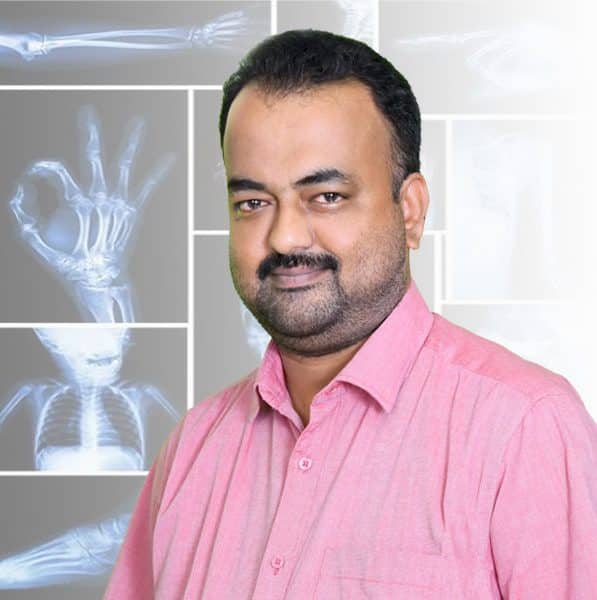Going on with a normal life can get pretty difficult with joint pain. Statistics suggest that lots of people in India are suffering from arthritis and various kinds of joint pain. Now, if you’re seeking a solution, are you confused between an orthopaedic and a rheumatologist? Do you know the difference between orthopaedic and rheumatologists?
Seek no more! Read on to learn the answers to your questions.
Explain Orthopaedic and Rheumatologists:
An orthopaedic doctor is responsible for diagnosing and treating ailments of the musculoskeletal system. He prescribes a treatment plan for individuals who have illnesses, conditions, or anomalies and conducts any necessary surgery.
On the other hand, rheumatologists are specialised to find out the reason behind inflammation, swelling, and pain affecting the joints, ligaments, tendons, etc. Their special skills allow them to conduct complex diagnoses.
Differences Between Orthopaedics and Rheumatologist
While choosing the right doctor, one has to consider the difference between orthopaedics and rheumatologists. The differences are listed below for reference:
- Orthopedists treat injuries and diseases primarily related to joints and bones. Rheumatologists specialise in treating autoimmune disorders affecting the musculoskeletal system.
- While orthopaedics often uses surgical treatment options, rheumatology uses non-surgical alternatives such as therapies and medicines.
- Orthopaedics treats conditions such as broken bones, torn ligaments or cartilages, nerve pain, osteoporosis, strained muscles, back pain, etc. Patients also choose orthopaedic doctors for arthritis. Rheumatologists are involved in treating conditions such as rheumatoid arthritis, gout, fibromyalgia, vasculitis, etc.
What Do Orthopaedic Doctors Do?
Orthopaedic physicians, frequently known as orthopaedic surgeons, concentrate on assisting you with musculoskeletal problems. They have a thorough knowledge of the musculoskeletal system and can treat various types of pain. People often visit orthopaedic doctors for arthritis. When joint stiffness, swelling, or pain reduces mobility, an orthopaedic can help you to improve your range of motion.
Orthopaedic physicians, frequently known as orthopaedic surgeons, concentrate on assisting you with musculoskeletal problems. They have a thorough knowledge of the musculoskeletal system and can treat various types of pain. People often visit orthopaedic doctors for arthritis. When joint stiffness, swelling, or pain reduces mobility, an orthopaedic can help you to improve your range of motion.
Orthopaedic treatment conditions such as:
- Osteoporosis
- joint discomfort, muscular pain, hip pain, knee pain, and so on.
- Ankle sprain
- Tendon injuries eg. ACL rupture.
- Broken hand, wrist, hip, etc.
- Neck, back, and shoulder pain.
A rheumatology doctor specialises in diagnosing and treating the conditions that cause inflammation and damage the joints, bones, muscles, and tendons. Usually, when someone suffers from persistent stiffness and pain, an appointment with the rheumatologist becomes inevitable. The doctor examines the patient’s history thoroughly before suggesting tests or treatment options.
Some of the conditions treated by a rheumatologist are
- Rheumatoid arthritis.
- Gout
- Scleroderma
- Systemic lupus erythematosus
- Myasthenia gravis
Consult your primary care doctor first to talk about your concerns and get a physical examination. If the problem persists, your primary doctor will refer you to an orthopedist or rheumatologist depending on your condition.
In the case of general arthritis, an orthopaedic specialist might be your best option. However, for rheumatoid arthritis, one should go for a rheumatologist. This is why one should know about the difference between orthopaedics and rheumatology.
While the questions to be asked differs from case to case, here are some general questions to ask:
- What will be the total treatment cost?
- Are there any risks involved?
- What kind of diet and lifestyle is best to prevent orthopaedic ailments?
- What are the previous experiences of the doctor in similar cases?
Visiting a rheumatologist is the perfect choice for the treatment of arthritis. All forms of arthritis, particularly those needing complicated therapy, can be treated by them.
Visiting a rheumatologist is the perfect choice for the treatment of arthritis. All forms of arthritis, particularly those needing complicated therapy, can be treated by them.
Yes, you can. However, a rheumatologist is more expert and specialised in treating gouts. ContactAyu Health and get your queries answered.Ayu Health are the most trusted chain of hospitals in India with highly experienced doctors across several specialties. As healthcare providers, we are committed to providing our patients with high-quality care at an affordable cost.
What Conditions Does an Orthopaedic Treat?
Orthopaedic treatment conditions such as:
- Osteoporosis
- joint discomfort, muscular pain, hip pain, knee pain, and so on.
- Ankle sprain
- Tendon injuries eg. ACL rupture.
- Broken hand, wrist, hip, etc.
- Neck, back, and shoulder pain.
What Do Rheumatology Doctors Do?
A rheumatology doctor specialises in diagnosing and treating the conditions that cause inflammation and damage the joints, bones, muscles, and tendons. Usually, when someone suffers from persistent stiffness and pain, an appointment with the rheumatologist becomes inevitable. The doctor examines the patient’s history thoroughly before suggesting tests or treatment options.
What Conditions Does a Rheumatologist Treat?
Some of the conditions treated by a rheumatologist are
- Rheumatoid arthritis.
- Gout
- Scleroderma
- Systemic lupus erythematosus
- Myasthenia gravis
How to Decide Between an Orthopedist and a Rheumatologist?
Consult your primary care doctor first to talk about your concerns and get a physical examination. They could request blood tests, X-rays, or other exams to check for anomalies and provide an initial evaluation. At this point, they could advise taking medication for pain. If your problem gets solved by this stage, it’s great. If the problem persists, your primary doctor will refer you to an orthopedist or rheumatologist depending on your condition.
Additionally, the above-mentioned differences between orthopaedic and rheumatologist will be helpful in making a decision.
Conclusion
Problems such as joint pain and arthritis are quite common. However, that doesn’t imply that the patient has to bear them lifelong. With advanced medicine and treatment options, these ailments can be brought under control. Are you seeking medical help? Ayu Health Hospital is your best choice. Contact us at 08069489584 to know more!
FAQs:
Which doctor to choose for finger pain?
In the case of general arthritis, an orthopaedic specialist might be your best option. However, for rheumatoid arthritis, one should go for a rheumatologist. This is why one should know about the difference between orthopaedics and rheumatology.
What questions to ask during the appointment?
While the questions to be asked differs from case to case, here are some general questions to ask:
- What will be the total treatment cost?
- Are there any risks involved?
- What kind of diet and lifestyle is best to prevent orthopaedic ailments?
- What are the previous experiences of the doctor in similar cases?
What kind of condition is rheumatoid arthritis?
Rheumatoid arthritis is an autoimmune disorder, where the body’s immune system mistakenly starts to attack body tissues and organs. This condition usually affects the joints, bringing about swelling, pain, and inflammation.
Which doctor is the best fit for arthritis treatment?
Visiting a rheumatologist is the perfect choice for the treatment of arthritis. All forms of arthritis, particularly those needing complicated therapy, can be treated by them.
Can I visit an orthopaedic for gout?
Yes, you can. However, a rheumatologist is more expert and specialised in treating gouts. ContactAyu Health and get your queries answered.Ayu Health are the most trusted chain of hospitals in India with highly experienced doctors across several specialties. As healthcare providers, we are committed to providing our patients with high-quality care at an affordable cost. .Call 636-610-0800 to book an appointment or to know more
Our Hospital Locations
Orthopaedics Surgery Hospitals in Chandigarh | Orthopaedics Surgery Hospitals in Bangalore | Orthopaedics Surgery Hospitals in Jaipur | Orthopaedics Surgery Hospitals in NCR | Orthopaedics Surgery Hospitals in Hyderabad
Our Doctors
Orthopaedics Surgery Doctors in Chandigarh | Orthopaedics Surgery Doctors in Bangalore | Orthopaedics Surgery Doctors in Jaipur | Orthopaedics Surgery Doctors in NCR | Orthopaedics Surgery Doctors in Hyderabad
About the Author

Dr. Manjunath Kumar K.
Dr. Manjunath Kumar K. is a renowned Orthopaedics currently practicing at Ayu Health, Bangalore.
He is an orthopedic surgeon currently practicing at Mallige Medical Center, Bangalore. A highly qualified doctor, he has completed his MBBS from Bangalore Medical College and MS in Orthopedics from KIMS, Hubli. further higher surgical training was from England, Birmingham. His post-graduate degree from the royal college of Edinburgh and the Royal College of Ireland. He also has vast experience in treating Unilateral Total Knee Replacement, Bilateral Total, Knee Replacement, Total Hip Replacement Surgery, and ACL Tear




